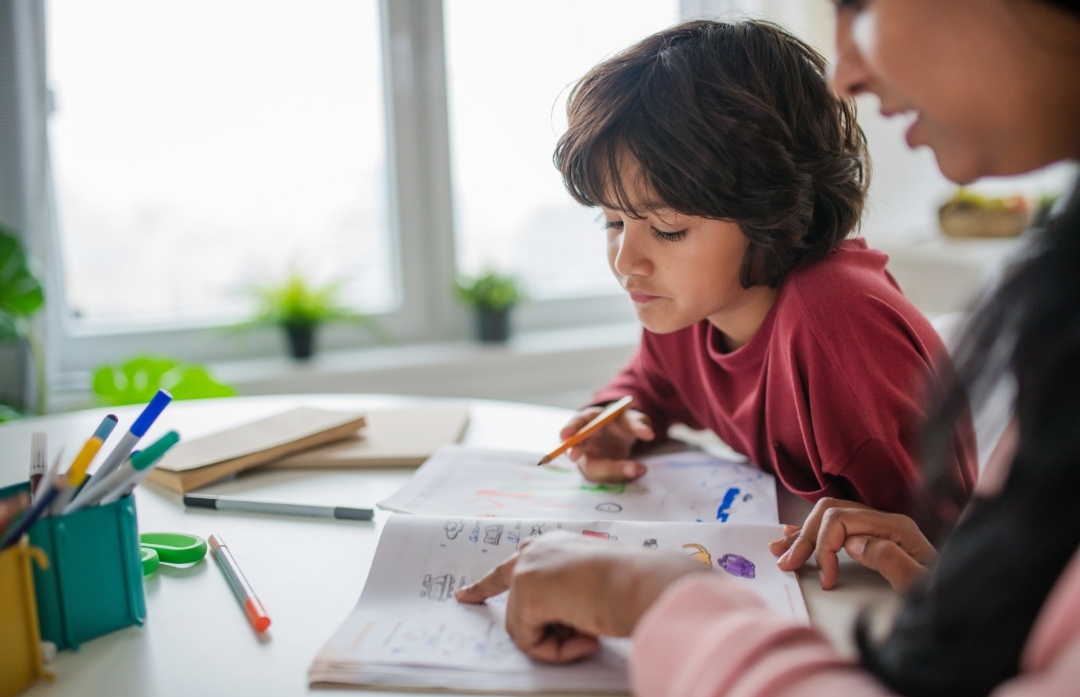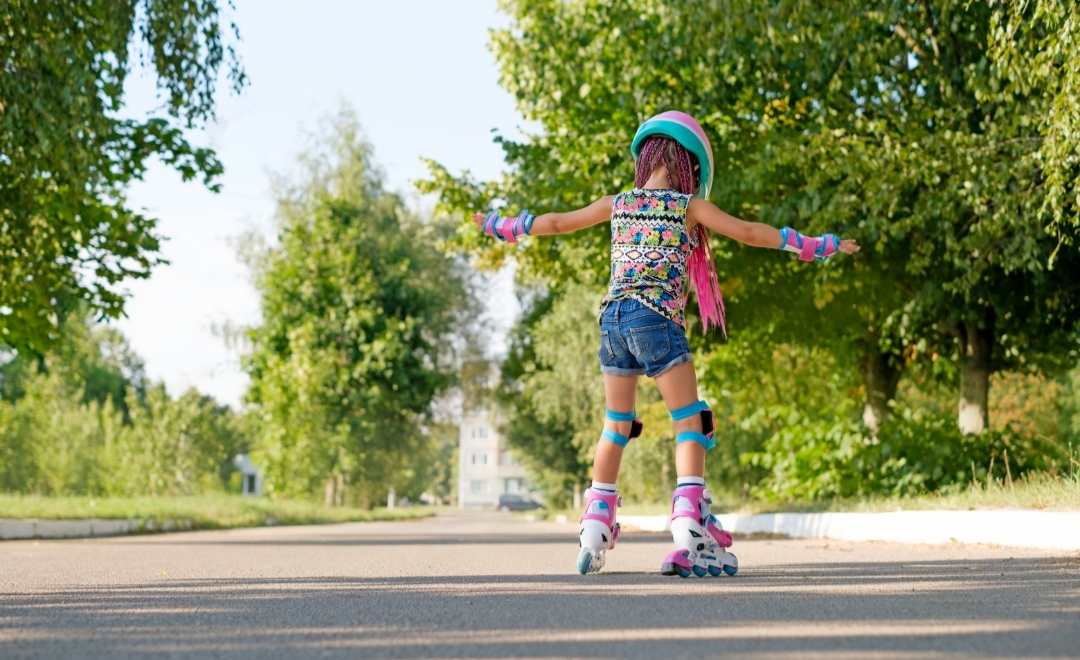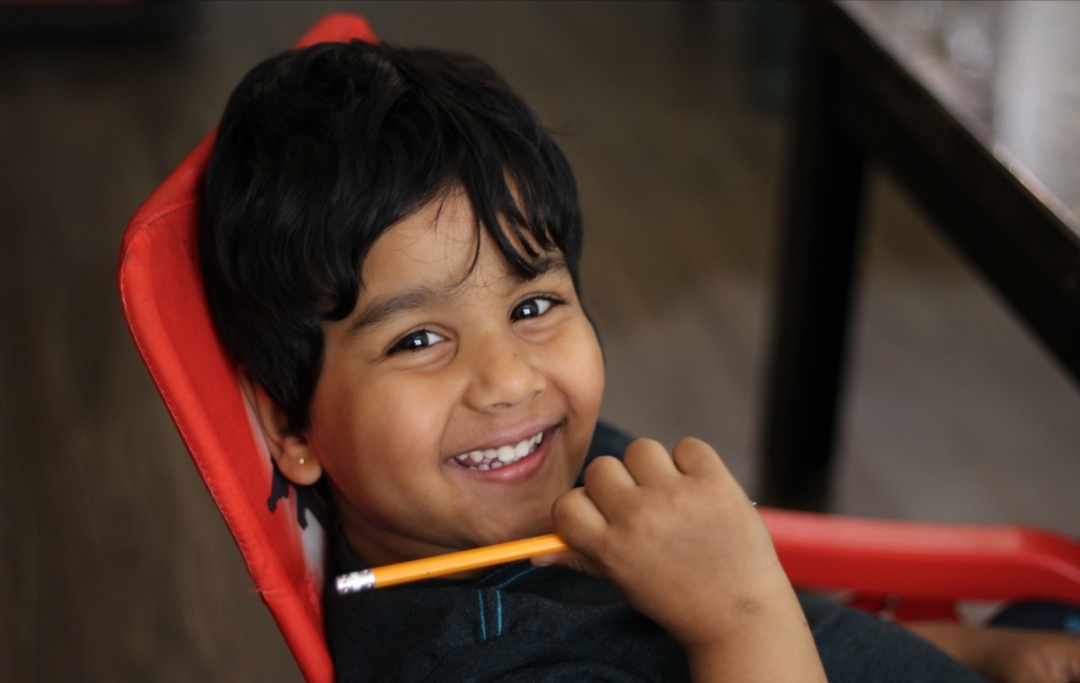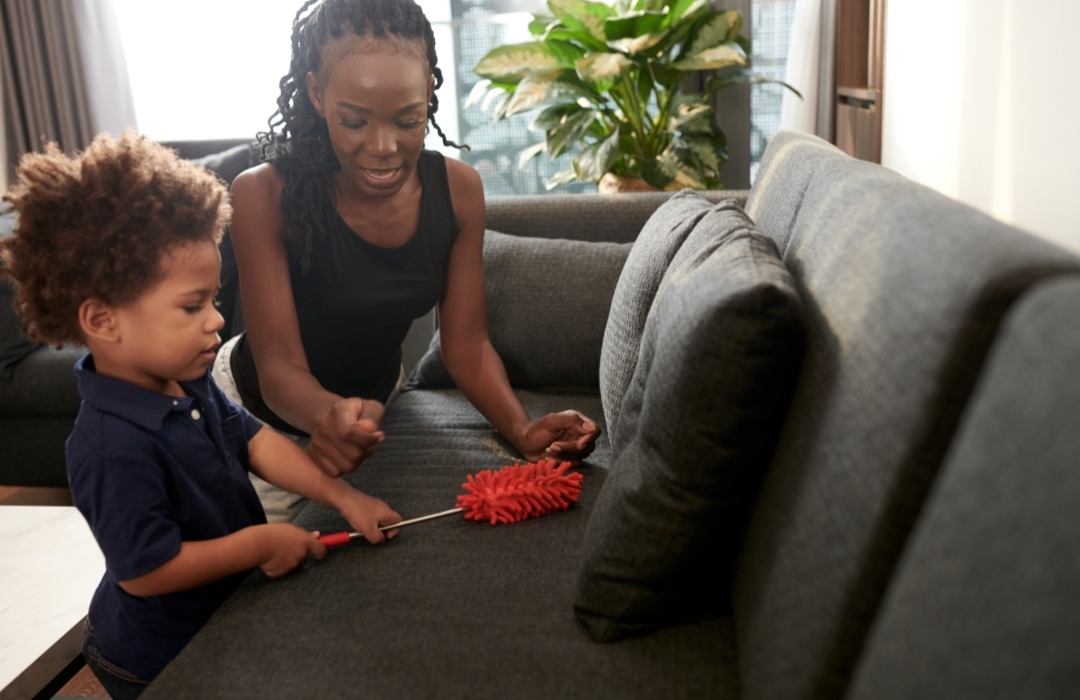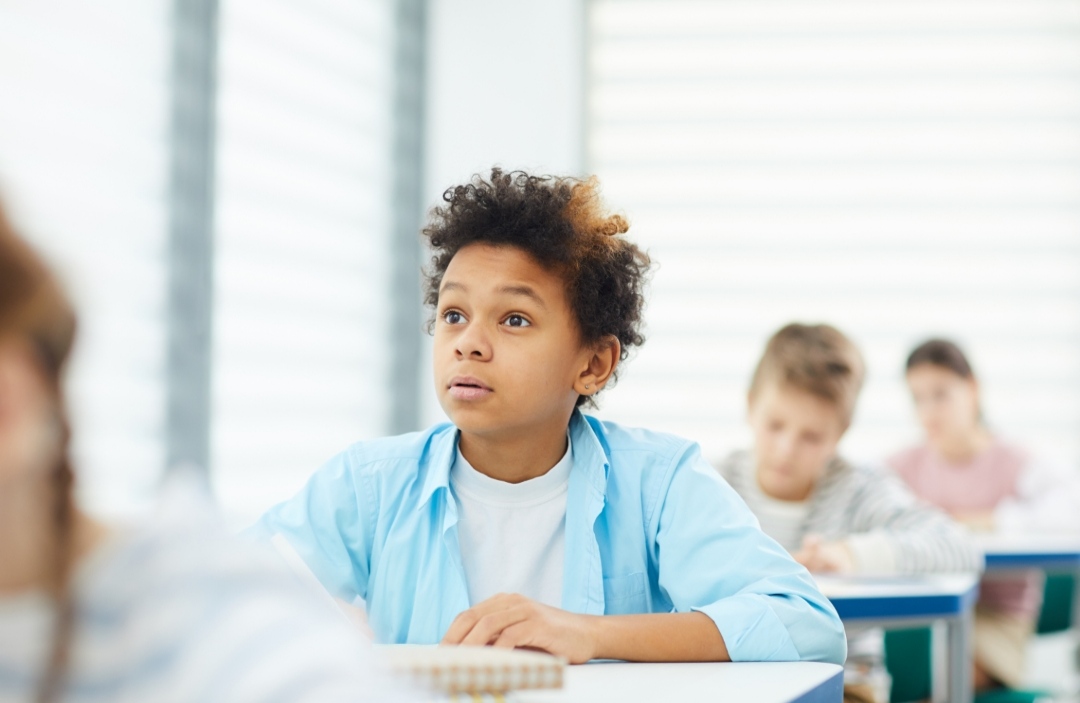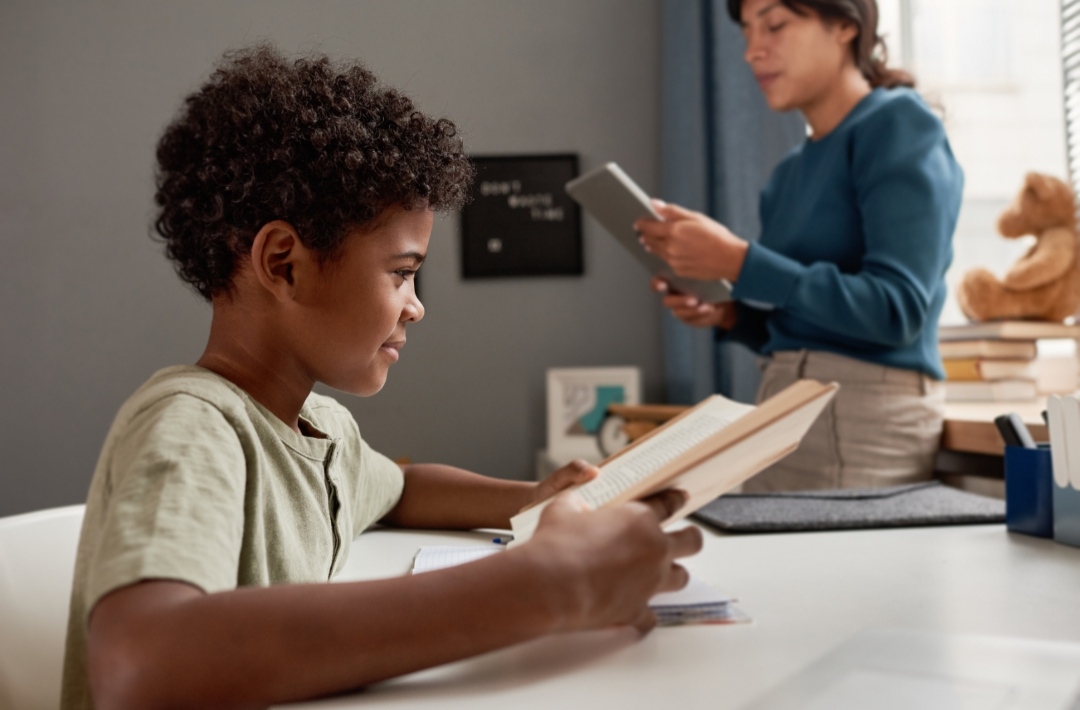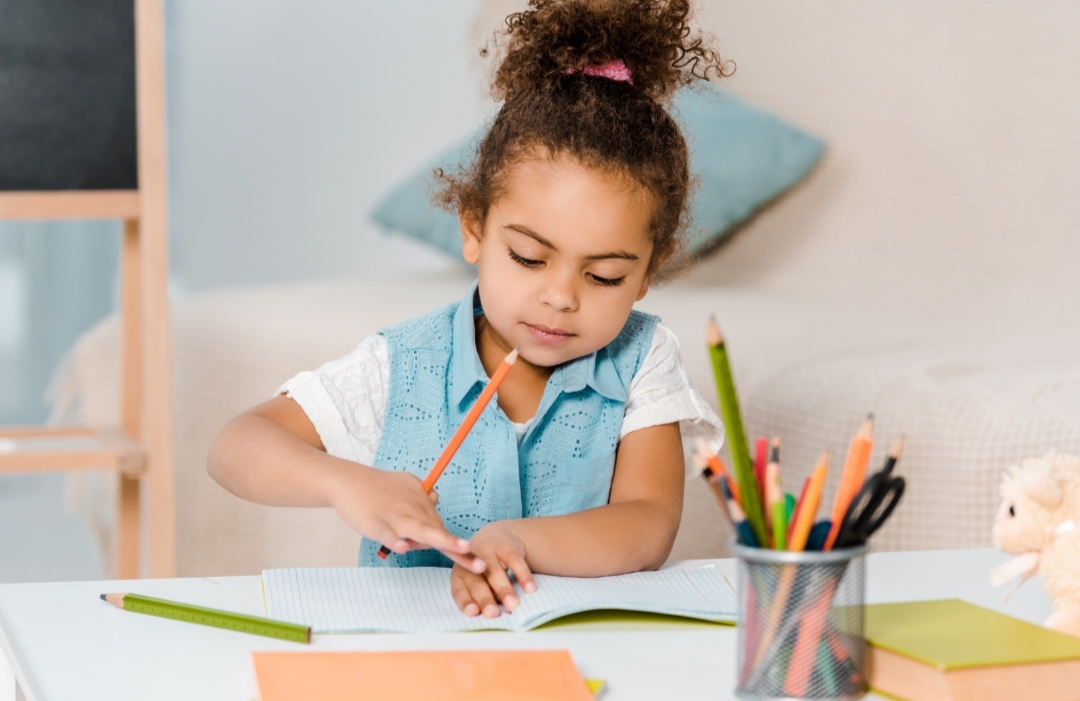Dr. Dhanalakshmi N.
Ph.D. (N), PG Psychological Counselling, M.Sc. Psychology
Introduction
Pre-Schoolers are special. They are changing from playing alone to playing together and their language capacity is developing. They learn and develop skills such as naming colors, shapes, etc., As the child grows, they become more independent and begin to explore the world. They are more curious and ask many questions. Learning or study strategies help parents to plan for their children to achieve successful learning.
Learning strategies
The below factors promote learning for kids:
Environment: It is important to provide a comfortable environment to promote learning. The environment includes natural ventilation, adequate lighting and a lack of noise. A proper environment will influence the child to focus better and prevent distraction.
Plan: “Make every day learning day” making a daily schedule for kids learning will minimize confusion and arouse interest among children. Schedule a fixed time to study daily. Plan regular breaks between studies since children’s minds cannot concentrate for more than 15 to 20 minutes. Children are naturally curious. All you have to do is give enough material and exposure. Don’t force them but encourage them to do the activities. Show excitement in learning and get them excited to learn new things.
Child’s Interest: Consider your child’s interest while planning the schedule. Consider the child’s interest in subjects, books, topics, stories and methods of learning.
Rewards: Provide positive rewards or reinforcement to strengthen the learning process. Encouragement influences the child to learn better.
Focus on strengths: It is important for parents to identify their children’s strengths and weaknesses to work with them better. Focus on children’s strengths and also find ways to convert weakness to strength. For example, if your child finds maths difficult, use simple techniques. Make mathematics practical. For example, have her count bangles or objects she likes. Ask her to distribute, say three bangles, to each of the people in the room. Give her two green bangles and three red bangles and ask her how many bangles in total she has.
Focus on performance: Some parents are concerned about their children getting the highest score or grades. Parents must focus on how well the child learns rather than the grades.
A balanced life: Adequate rest, physical activity, a positive mindset, good environment and nutritious food will promote a child’s learning success. Regular physical activity promotes not only physical health but also promotes self-confidence, focus and concentration.
Role model: Parents should be role models to their children in learning, taking an effort to learn and showing enthusiasm. Pre-schoolers observe and imitate their parents. Try to be seen reading a book, writing and doing other positive things you want your children to emulate.
Review: Review with your child what was learned on the previous day before you teach a new topic. Recollecting information about past learning promotes a child’s memory.
What Learning Methods or techniques can be used to teach kids?
Observation: Children can be exposed to the natural environment and they can observe and experience sensory learning. Learning by seeing, hearing, touching, smelling and tasting. Studies have proven that visual learning retains memory longer than auditory learning.
Learning through play: The play method is the best method for younger children. Theme-based play can be organised. This method arouses the child’s interest and maintains her interest to learn more. Game-based learning is the best way to teach new ideas and knowledge to kids. Theme-based learning can be planned through
- Singing and dancing,
- Role play or acting out
- Telling stories or reading stories
- Interacting with other children
- Hopping and climbing
- Arts and crafts etc.,
Audio-visual aids: Audio-visual aids such as flashcards, posters, radio, tape-recorder, blackboard, pictures, models etc., are more effective and promote learning.
Sensory learning: Sensory play stimulates a child’s senses through hearing, seeing, touching, smelling and tasting. Children can be allowed to play with water, sand, clay, colour pencils or paints, puzzles, building blocks, planting a garden, playing with food etc., sensory play promotes language, gross and fine motor and cognitive development. It also strengthens the social interaction between children while playing. This method can be used as an alternative to reading.
Brainpower boosting activities and Yoga poses for kids
Clapping hands: Studies have proven that hand-clapping games improve a child’s writing skills and handwriting. It also improves mood and releases tension.
Squats (Thoppukaranam): Studies have shown that this is a great yoga technique to boost brain power. Daily practice of squats improves a child’s concentration, social skills, academic performance and class participation.
Tree poses: Making the child stand on tree poses daily will improve concentration.

Shavasana (corpse pose): Daily practice of Shavasana calms the mind and improves concentration.
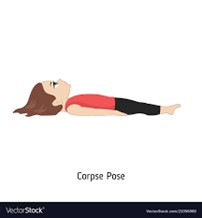
Padmasana: It is also called the lotus pose. Daily practice of this pose helps to relax the mind and improves focus, concentration and memory power.

References


